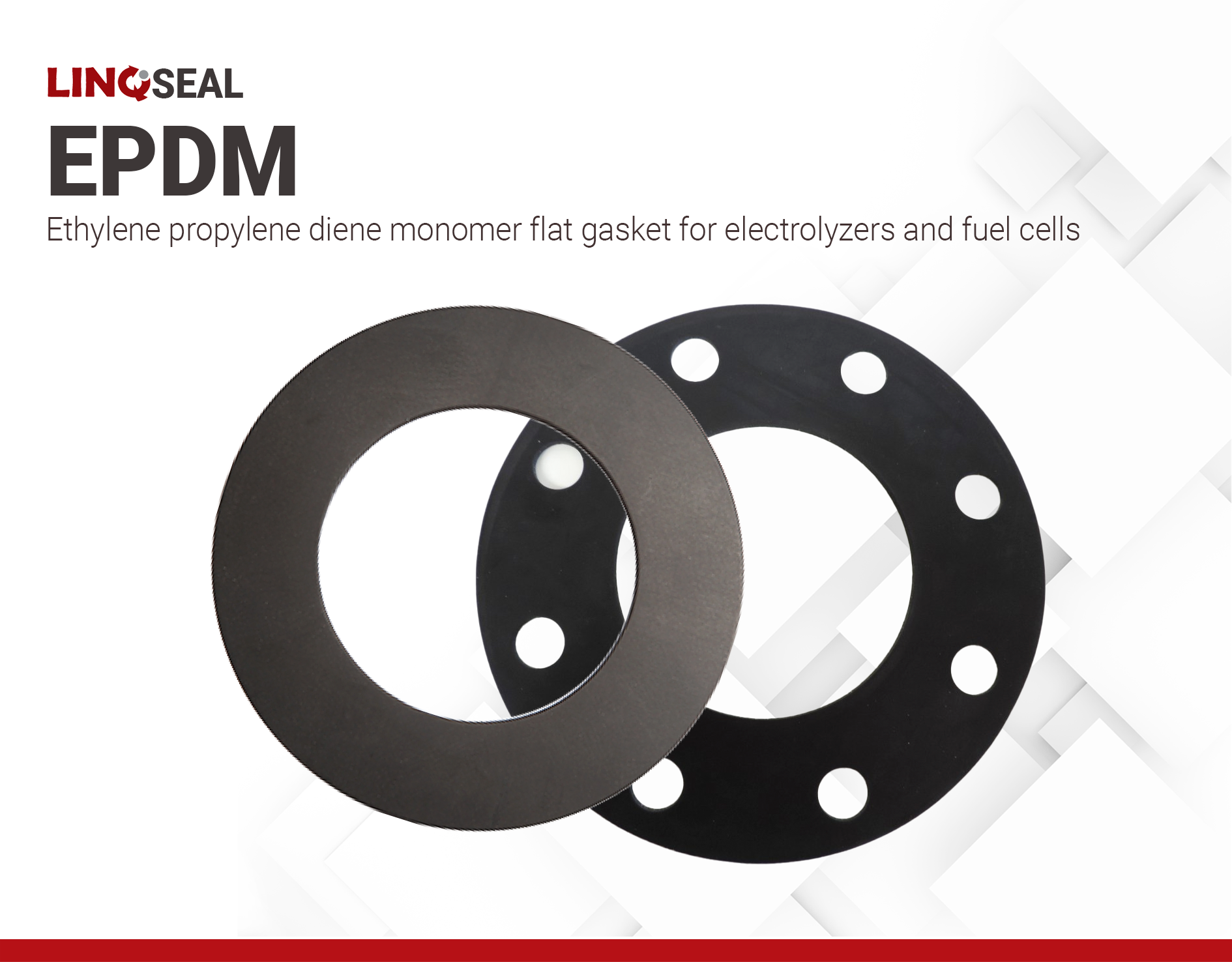LINQSEAL GS-EPDM
- Low cost sealing solution
- High hear resistance and tensile strength
- High water (steam) resistance
Product Description
LINQSEAL GS-EPDM gaskets consist primarily of ethylene (comprising 45–75%), along with propylene and diene monomers. This unique composition provides the gaskets with exceptional versatility and durability. The diene monomers contribute to the formation of a cross-linking structure, enhancing the mechanical properties, such as elasticity, and significantly increasing resistance to aging. This rubber material exhibits high resistance to a wide range of environmental factors, including heat, cold, ozone, steam, electricity, UV rays, abrasion, and water, making it a preferred choice for various outdoor and challenging conditions. Compared to silicone and other polymers, EPDM boasts a higher tensile strength. Overall, LINQSEAL GS-EPDM is a cost-effective solution with outstanding performance in demanding outdoor environments.
Custom LINQSEAL GS-EPDM gaskets can be tailored precisely to your specifications and drawings. The thickness ranges from 0.5 to 5.0 millimeters. The maximum dimensions are 1500 × 1500 mm2, while the minimum dimensions are 100 × 100 mm2.
Key Features:
- High tensile strength
- High abrasion and weather resistance
- Good temperature stability (–57 °C to 150 °C)
Highly Recommended As:
- Outdoor sealing material
- Flat gaskets for water electrolyzers and fuel cells
Technical Specifications
| General Properties | |||||
| Density (g) | 1.45–1.50 g/cm3 | ||||
| Mechanical Properties | |||||
| |||||
| Elongation Elongation Elongation is the process of lengthening something. It is a percentage that measures the initial, unstressed, length compared to the length of the material right before it breaks. It is commonly referred to as Ultimate Elongation or Tensile Elongation at break. | 200 % | ||||
| |||||
| Thermal Properties | |||||
| Operating Temperature | –57 to 150 °C | ||||



